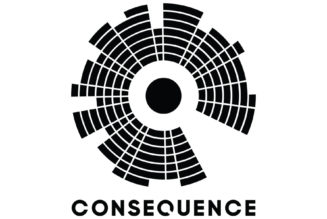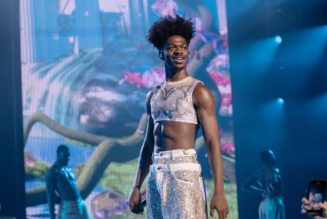Before we start, a note: There really is no precedent for what Taylor Swift is doing.
Sure, artists have re-recorded bits and pieces of their catalog over the years. Frank Sinatra, Def Leppard, DMX — they’ve all redone at least some of their greatest hits due to prior contract disputes or other financial incentives. In 2018, JoJo re-released new versions of her first two albums, after years of label quarrels and not owning her masters — troubles not so foreign from Swift’s contentious ending with Big Machine Records and feud with super-manager Scooter Braun, who acquired the pop megalith’s first six albums in 2019 and flipped them to a private equity firm for a cool $300 million in November.
No artist in their prime, let alone one of the best-selling singers of the last 20 years — fresh off her two most critically acclaimed albums yet in 2020’s folklore and evermore (the former being last year’s best-seller) — has ever undertaken the full re-recording of a half-dozen enormously successful LPs for sake of owning her music outright.
Yet no mainstream star has been more vocal about artists’ rights than Swift. So off we go, into an uncharted, paradoxical period of her career where the songwriter will simultaneously release new songs, old songs made new again, and “From The Vault” tracks that are so old and obscure, they appear completely new to most listeners.
The first entry in the “Taylor’s Version” re-release series, her 2008 breakthrough and sophomore album Fearless, dropped Friday with an expansive 27 tracks — 110 minutes of music comprising the original track list, all the era’s “Platinum Edition” add-ons and six previously unreleased deep cuts (some of which had appeared as bootlegs on YouTube for years).
The labor involved in this level of meticulous replication, particularly on the Fearless originals, is difficult to fathom. The arrangements, this time performed mostly by Swift’s longtime touring band as opposed to the original session musicians, are near-perfect facsimiles of the first cuts, down to the last twang. Any fans hoping for drastic remixes of “You Belong With Me,” “Love Story” or “Fifteen” may be disappointed as all the tales of hopeful (and hopeless) young love remain the same.
While Swift’s voice has surely matured, collecting more texture and warmth since ‘08, her vocal performances here are, again, precise matches to the country-pop of her late teens, perhaps with the put-on drawl turned down a few notches. A casual listener would scarcely know the difference, which may be how Swift wants it, for posterity’s sake.
All the previously released songs were co-produced by Swift and Nashville-based Christopher Rowe, who worked on some remixes during the Fearless era but was not the album’s original producer. Nathan Chapman, who did handle the original mixes, did not return.
The most exciting bits of Fearless (Taylor’s Version), are the six largely unheard “vault” songs, some of which tout copyrights from as far back as 2005, predating even her self-titled debut in 2006.
For these oldie-newbies, Swift tapped her folklore-era producers — The National’s Aaron Dessner and Jack Antonoff, now on his fifth T.S. project — to help shepherd what is essentially an EP of unreleased material tacked onto the end of Fearless 2.0.
The standout here has to be “Mr. Perfectly Fine,” a country-tinged, ‘00s pop-rock ripper conjuring the best of Kelly Clarkson and Shania Twain. Recorded with Antonoff and several musicians from his electro-pop band Bleachers, the break-up track is deviously addictive — a banner timewarp, complete with a revealing “casually cruel” line preceding the famed “All Too Well” lyric two albums later. It’s also sort of a mindfuck, as 31-year-old Swift freshly sneers over an ancient teen romance (fans believe the tune’s victim is Joe Jonas; his name was trending on Twitter upon the song’s release Wednesday).
Other highlights include the silky heartland ballad “You All Over Me,” featuring pop-country successor Maren Morris, and a hooky acoustic duet with Keith Urban called “That’s When,” which ventures a peek into an alternate universe where Swift never left Nashville and stayed the route of a Carrie Underwood or Miranda Lambert.
While Fearless (Taylor’s Version) isn’t quite the essential listen that a brand-new record typically would be, it’s certainly a compelling revisitation, executed with the same rigor and attention given to all of Swift’s projects. It’s an unlikely treat for fans who would kill to see Swift, as she stands today, perform her first massive record in its entirety.
There’s a bit of mystique to this whole effort, too, as questions abound even as we generally know what’s coming: Which album comes next? Will each of these revamps include a half-dozen B-sides? Could the re-recordings sell even better than the originals? Will the Taylors of past eras slowly overtake the cottage-core-queen aesthetic Swift has cultivated since last July? Is she unwittingly building a time-hopping narrative around her work not unlike the Marvel Cinematic Universe, and if so, how does Tom Hiddleston factor into all this?
We kid, of course, but again, the scale of this is all new to modern pop. Predictions are anyone’s game. But the smart money is on plenty more surprises to come as Swift paves the way, head first, fearless.












